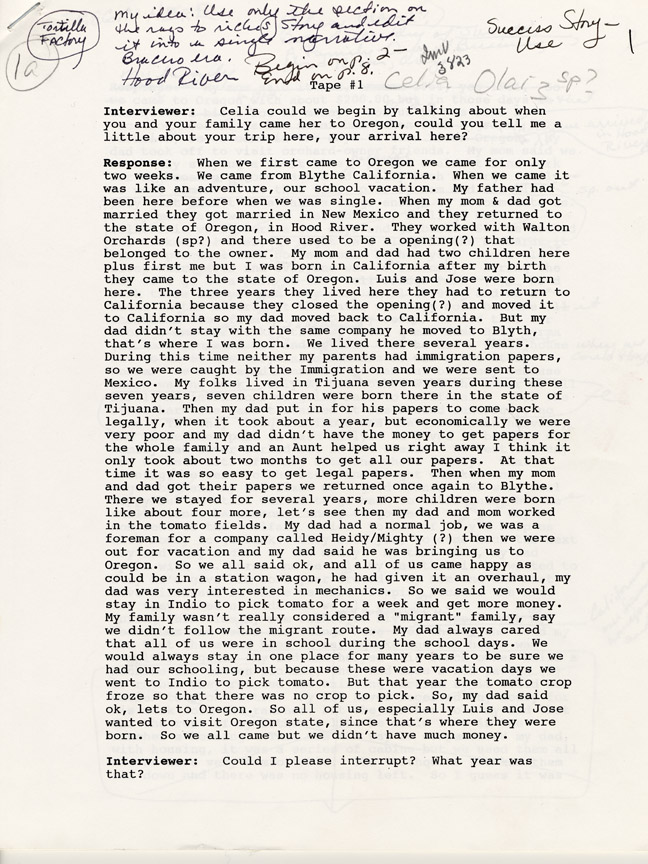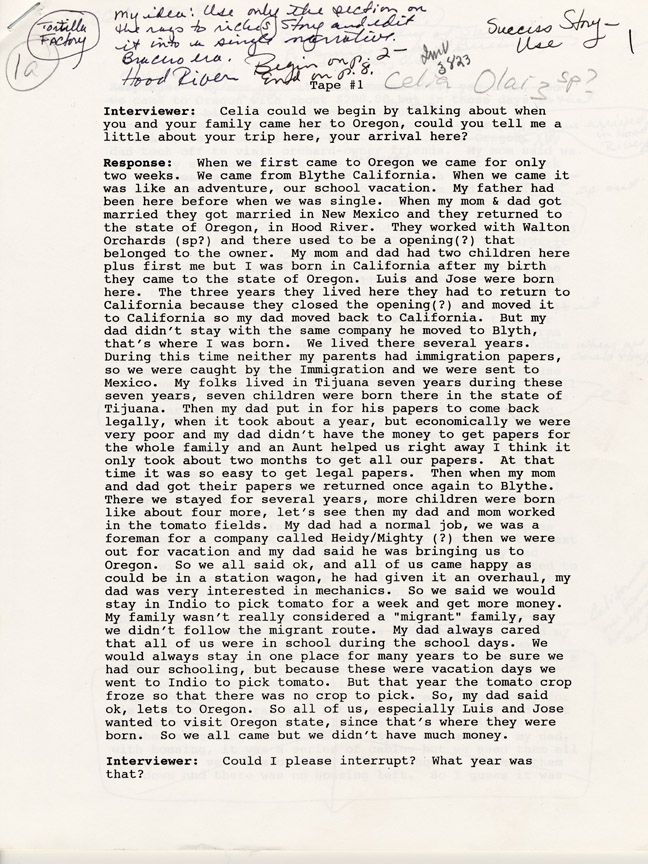This oral history interview of Celia Dominguez Mariscal was recorded on January 21, 1994, by Noel Wiggins as part of a larger project funded by the Oregon Council for the Humanities undertaken to document the lives of Latinos in Oregon. An edited version of the interview appeared in the 1995 publication of Nosotros: The Hispanic People of Oregon: Essays and Recollections, edited by Erasmo Gamboa and Carolyn M. Buan.
Celia D. Mariscal moved with her family from California to Oregon’s Hood River Valley in 1964. According to her, even though they were the only Mexican family in the area, “everyone [in Hood River] was very friendly. We easily made friends with other schoolmates and we were happy.” Still, within a year’s time, Celia decided to earn her G.E.D. and leave high school so that she could find an office job. In 1965, she was hired by the U.S. Forest Service as a secretary. Two years later, her bilingual skills earned her a managerial position in the Forest Service, where she helped Mexican migrant workers arriving in the Hood River area under the U.S.-Mexican Bracero program.
In 1969, she and her siblings started their own tortilla business. Under the label Juanita’s Fine Foods, they began making and distributing corn tortillas from a twenty-by-ten-foot space in downtown Hood River. Within a decade, the business was making approximately $4 million per year. By the mid-1990s, the business employed approximately sixty people and has since become the largest tortilla factory in the Pacific Northwest.
Further Reading:
Gamboa, Erasmo and Carolyn M. Buan, eds. Nosotros: The Hispanic People of Oregon: Essays and Recollections. Portland, Oreg., 1995.
Written by Joshua Binus, © Oregon Historical Society, 2004.



